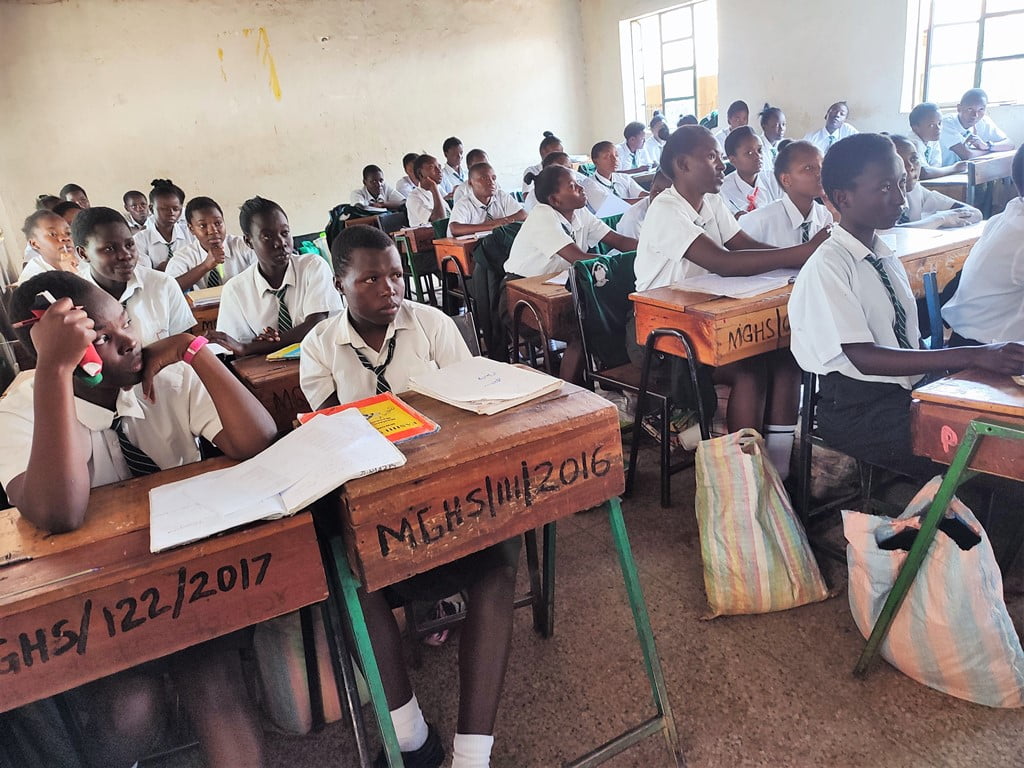By Peter Otuoro
A higher number of Form Two boys are likely to drop out of school compared to girls due to financial difficulties, a new study by the Kenya National Examination Council (KNEC) has revealed.
According to the baseline study, 31.7 per cent financial difficulties contributed to boys’ drop out compared to 28.9 per cent for girls.
Comparatively, low academic achievement is likely to squeeze out more Form Two boys from school compared to girls at 18.2 per cent and 13 per cent respectively.
However, pregnancy contributed at 54.4 per cent cause for school girl dropout, calling for urgent measures to curb the trend.
To make up for pregnancy as the cause for the girl, truancy and drug abuse emerged as other main cause for the Form Two boy’s drop out at 26.9 per cent and 16.6 per cent respectively.
The baseline survey targeted all the Form Two students in 2,147 public secondary schools in 110 sub-counties drawn from 30 counties.
KNEC National Assessment Centre Coordinator Eva Ngota said that Form Two girls drop-out as majority of them do not report to school after birth.
Ngota said many school boys in Form Two join boda boda operations to enable them get money, a problem that she added, should be addressed by sensitising the boys on the importance of education to enable them complete their secondary school education.
While addressing over 300 Teachers Service Commission (TSC) sub-county directors during a five-day workshop at Egerton University, she said the report revealed that 63.5 per cent of students have been absent in school for one time.
“The school principals whom we interrogated about the reasons for student absenteeism said that lack of school fees contribute to students’ absenteeism in many secondary schools in the country,” said Ngota.
In order to address these problems, she urged non-governmental organisations and other state organs to join hands to curb higher rates of early pregnancy which is the main reason causing many Kenyan school girls to drop out.
Ngota also encouraged parents and guardians to assist girls financially to enable them proceed with their secondary education to the fourth form.
She said girls who do not perform well academically should be encouraged to work hard to enable them to understand that they can gradually improve their academic grades and getting low grades should not be an excuse to drop out of school.
“Parents should be encouraged to advise their girls to proceed with education after delivery,” said Ngota.
She said the negative impact of student absenteeism is that teachers and students will not be able to cover syllabus which will contribute to poor performance in national exams.
On teachers’ contribution to students’ performance in school, the report revealed that 27.5 per cent of teachers in Kenya have more workload than required as per the regulations and guidelines of TSC.
“We also identified that most of our teachers have a huge workload that cannot enable them to produce good results. Let TSC employ more teachers to enable current available teachers reduce work load and enable them to produce good academic results in our schools” said Ngota.
She said that the report has also revealed that 92 per cent of teachers in Kenya continued with their appraisal using the Teacher Performance Appraisal and Development (TPAD) system while eight per cent of Kenyan teachers have not been appraised using the system..
Ngota said that the study findings have revealed that TPAD has a positive impact in the education system in Kenya, especially in the teaching profession.
She highlighted that TPAD has assisted teachers preparation by 61.3 per cent, teachers time management by 59.7 per cent, teachers teaching learning materials by 59.6 per cent, teachers effective classroom progressive by 54.4 per cent and teachers syllabus coverage by 50.2 per cent.
“If all teachers decide to seriously use TPAD they will do their work and produce good results that will be of benefit to our nation”, said Ngota.
She also said that some Kenyan teachers also contribute to inadequate syllabus coverage that causes many students not to cover their syllabus in most of the subjects.
Ngota revealed that teachers-related factors that affect syllabus coverage include time wastage by teachers 76 per cent, frequent absenteeism of teachers 70.7 per cent, inadequate Training of teachers, 48 per cent and failure to use syllabus while teaching 36 per cent.
She also stated that factors affecting effectiveness of teachers in most Kenyan schools are insecurity by 72.5 per cent, sickness by 60.7 per cent, drugs 60 per cent, natural calamities by 59.7 per cent and domestics issues by 37 per cent.
Ngota also revealed that 72.2 per cent of Kenyan schools have no computer laboratories and school libraries.
“The current 21st Century students are critical thinkers, good in communication and enjoy collaboration and class group-work and that can only make them succeed if they attend classes and cover syllabus adequately”, said Ngota.
The report also states that 48 per cent of Form Two students are over-aged boys, leading the rate of over-aged students by 57.6 per cent with girls following at 37.6 per cent.
Msambweni ,Teso South and Magarini sub counties are leading in the number of over-aged Form Two boys by 100 per cent, 93.6 per cent and 94.5 percent respectively.
On the other hand, Merti, Mbalambala and Magarini sub-counties lead in the number of Form Two girls who are over-aged by 100 per cent, 100 per cent and 88.5 per cent.
In matters of class repetition the report shows that transfer to other schools is leading in the cause of class repetition by 47 per cent followed by parents forcing students to repeat class by 40.6 per cent, absenteeism also causes class repetition by 37.5 per cent while poor academic performance also contribute to students repeating class by 24 per cent.
“There is no scientific research that has proved that students can only pass examination if they repeat class, we want to encourage our parents, students and teachers to avoid wasting time for students by forcing them to repeat. Let them proceed to the next class they will catch up academically,” said Ngota.






